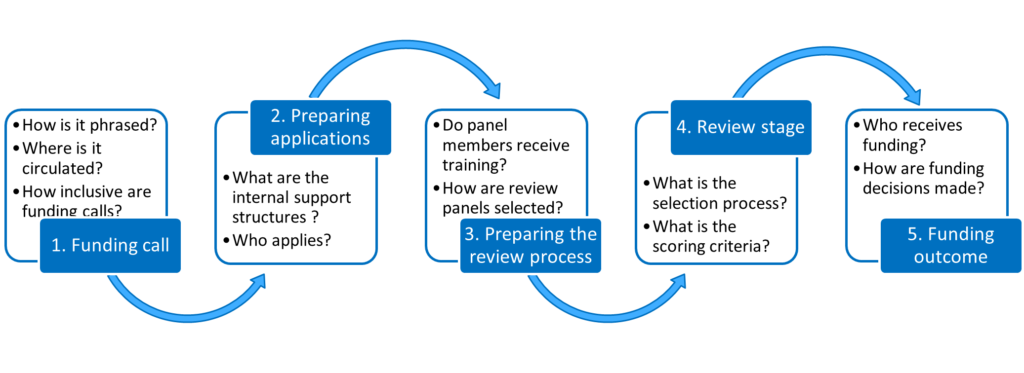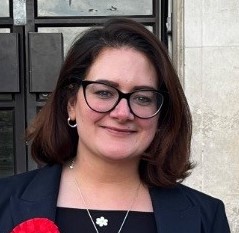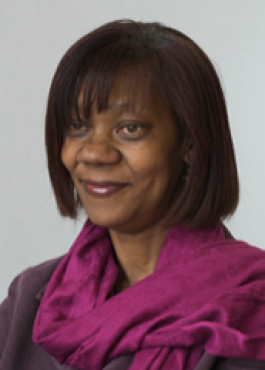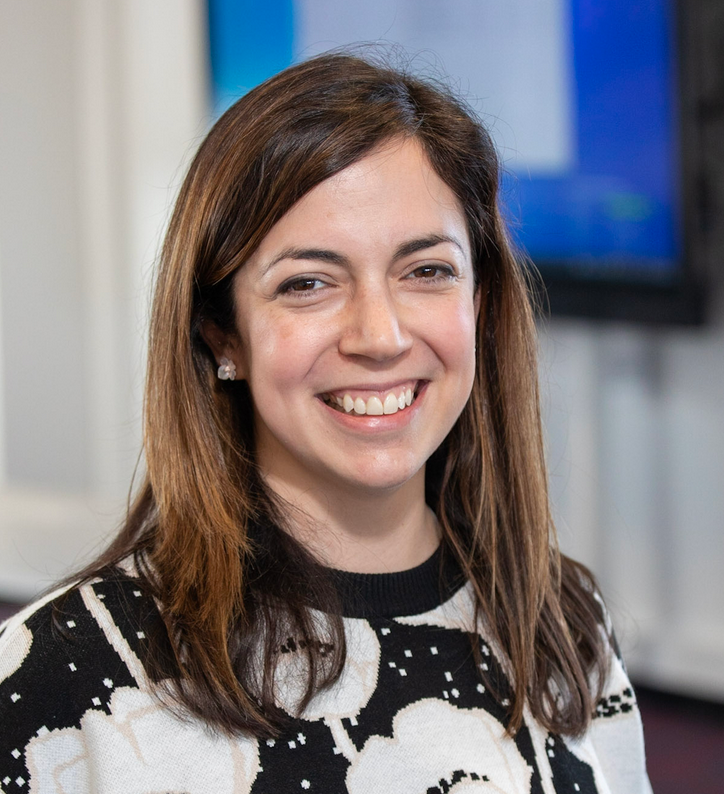Funded Projects
EDICa set aside £1 million for a Flexible Fund to commission projects aligned with EDICa’s three workstreams. Below you can find information about the projects chosen.
Home » Funded projects

University buildings with inaccessible entrance.
Round 3 Funding
EDICa’s final round of funding focused on the organisation of work and enabling workplaces in the UK’s research & innovation ecosystem.
To see the five projects funded from our last round of funding, scroll down and click on the project title for details.
Round 3 Projects
EDICa prioritised research projects that focused the organisation of work and enabling workplaces in the UK’s research & innovation ecosystem.
Led by Dr Yetunde Ataiyero with co-investigators Shenile Lindo and Prof Sarahjane Jones all from University of Staffordshire. With partners the Society for Black Academics and the Council of Deans for Health.
Black academics made up less than 1% of professors in the 2022/23 academic session (Higher Education Statistics Agency, 2024), and are less likely to hold senior leadership positions or become professors in the UK (Bhopal, 2019; Arday, 2018). A similar trend is observed in the National Health Service, where Black nurses are twice less likely to be promoted than their White counterparts (Mitchell, 2022). Although nursing is the largest profession in the healthcare workforce, it remains underrepresented in research, research leadership and publication authorship (Royal College of Nursing, 2024).
This study aims to theoretically explore the barriers to conducting research among Black nursing academics working at non-Russell group UK universities. Underpinned by the Intersectionality Theory (Crenshaw, 2017) and The Silences Framework (Serrant-Green, 2011), a qualitative multi study design is proposed, collecting data through qualitative interviews and modified Delphi methodology. This approach will help to identify and co-create pragmatic recommendations likeliest to be effective given barriers identified by study participants.
Work package 1 will explore the barriers to conducting research among Black nursing academics in non-Russell group universities using semi-structured interviewing techniques. Data will be thematically analysed, and themes will be interpreted using the underpinning theoretical frameworks.
Work package 2 will use a modified Delphi approach, recruiting key collaborators to two rounds of workshop sessions to propose theory-based pragmatic recommendations aimed at enabling research conduct among Black nursing academics. Anonymised findings from work package 1 will be shared with collaborators to gather their feedback in the first round. In the second round, collaborators will refine and validate findings and recommendations from the first round, synthesising expert opinions on research capacity building for Black nursing academics.
The project team will work with key organisations such as the Council of Deans for Health and the Society for Black Academics to recruit study participants and key collaborators and disseminate study findings.
Full Economic Costing (100% FEC) £63,561 (80% FEC £50,848)
Led by Dr Ria Cheyne of Liverpool John Moores University, with co-investigators Dr Ann-Marie Foster from Gray’s School of Art, and Dr Lucinda Matthews-Jones from Liverpool John Moores University. With partners Glamorgan Archives, Gwent Archives, History UK, Imperial War Museum, Liverpool Record Office, Scottish Council on Archives, and Tyne & Wear Archives & Museums.
The 2500+ archives in the UK are an important workplace for a wide range of users – from archivists, through to town planners, film-makers, genealogists, and historians. While there is a growing body of work about disability and archival accessibility, at present, very little is known about neurodivergent archive accessibility. With 15-20% of the UK population estimated to be neurodivergent, this means that there is a substantial and underserved community in the archive sector. The term ‘Neurodivergent’ emerged from autistic activism, designating those whose styles of thinking, communicating, or processing information diverges from the accepted norm, such as people with ADHD, dyslexia, Tourette’s, dyscalculia, or learning disabilities. Though some neurodivergent people are disabled, many are not.
Led by neurodivergent researchers, this project will generate new insights into how neurodivergent users experience the archive. It will bring archive users and professionals together, at workshops held online and regionally, to deepen professionals’ understanding of barriers, and collectively develop strategies for barrier removal. The project team will use creative methods including photography and zine-making which allow for a richer understanding of experience, while enhancing accessibility. They will also be setting up an action group, and will be working with a wide range of people who are interested in joining or helping develop this work. If you are a (neurodivergent) archivist/archive user, and this project sounds of interest to you, please do get in touch – they’d love to hear from you.
Full Economic Costing (100% FEC) £59,639 (80% FEC £47,712)
Led by Dr Katherine Deane at the University of East Anglia (UEA), with co-investigators Prof Joanna Semlyen and Brendan Burrill of UEA, and Em Diserens of the Lightyear Foundation. This project is a collaboration across the Eastern Academic Research Consortium (EARC) which includes the universities of East Anglia (UEA), Sussex, Essex, and Kent. Partners also include The Royal Society, The Royal Society of Chemistry, The Institute of Biomedical Sciences, The Wellcome Trust, Catapult Cell and Gene Therapy, the National Association of Disabled Staff Networks (NADSN), and the EDI Sharing Hub funded by EPSRC.
Around 1 in 5 (20%) of working people in the UK are disabled, but in the research and innovation sector, this drops to 1 in 25 (4%). This lack of diversity in the workforce negatively impacts the quality of research and innovation outputs. Historically, disabled people have been regarded as a safety hazard in laboratory environments. Modern design and protocols can make labs fully accessible, safe, and comfortable for disabled people. However poor attitudes and low knowledge about how to make labs accessible can hinder progress.
This project aims to create an assessment of how accessible laboratories are for disabled people. The project will assess the accessibility of a range of labs across EARC. It will also assess two highly accessible facilities at UEA that have been in use for over 5 years to gain some feedback on what aspects of disability access recommendations do or do not work in practice. It is hoped that this assessment will allow the publication of a fair description of the labs’ accessibility and allow facilities to plan for future improvements.
Full Economic Costing (100% FEC) £73,396 (80% FEC £58,940)
Led by Dr Tinkuma Ejovi Edafioghor at The University of the West of England, with co-investigator Dr Ifeoma Dan-Ogosi also at UWE and Alice Chilver at Women’s Higher Education Network.
This project explores how hybrid working models shape the productivity and visibility of Black women academics in higher education following the COVID-19 pandemic. While hybrid work arrangements offer flexibility, they also raise critical questions about professional recognition, career progression, and inclusion within academic spaces. Using a qualitative approach, this study will gather insights through interviews and focus groups to explore how institutional policies, digital engagement, and workplace cultures influence the experiences of Black women in academia.
The project is supported by the Women’s Higher Education Network (WHEN). WHEN will assist with participant recruitment and provide a platform to share findings, helping to amplify voices and extend the project’s reach. By highlighting both challenges and opportunities, this study aims to inform transformational attitudinal and policy changes, fostering greater equity and inclusion in higher education.
Full Economic Costing (100% FEC) £48,904 (80% FEC £39,123)
Led by Dr Hadar Elraz of Swansea University with co-investigator Dr Armineh Soorenian of the University of Sheffield. With partners Disability Arts Cymru, Disability Wales, Women in Academia Support Network (WIASN), Sheffield WAARC (Wellcome Anti-Ableist Research Cultures), Disabled Women in Academia Group, and the Anti-Ableism Swansea University Group.
Universities in the UK are facing the difficulties of increased demand for their services when resources are finite and often decreasing. While this situation invariably leads to increased strain on the people who work in universities, it does not appear that the associated work intensification and stresses fall equally on all. This project will examine the experiences of women academics in UK Higher Education (UKHE) with mental health conditions, who may be disproportionately affected by the current working environment, to better understand the impact of multiple barriers on their professional and personal lives.
This project will examine how enabling workplace practices can address the problematic connections between gender and mental health conditions in UKHE. It will explore what best practices are available and how they can be implemented more widely, including beyond UKHE, taking as a key pillar the Social Model of disability, rather than the Medical Model.
The Social Model proposes that society should create enabling spaces that support individuals, rather than, as the Medical Model does, placing the burden on the individual. Through a series of interviews and focus groups, this project will investigate experiences of working in disabling/enabling spaces in UKHE to better understand how all people, including but not only limited to women academics with mental health conditions, can manage the intersections of marginalisation, and even thrive in the contemporary UKHE workplace, resulting in improved wellbeing and mental health for all.
Full Economic Costing (100% FEC) £59,578 (80% FEC £47,663)

The drag Covid-19 and its lockdowns has had on careers
Round 1 Funding
EDICa has been researching the impact that Covid-19 and its lockdowns has had on inequalities in research & innovation careers. For initial findings from our national survey, click on this button.
To see the four projects funded from our first round of funding, scroll down and click on the project title for details.
Round 1 Projects
EDICa prioritised research projects that focused on mitigating the effects of Covid-19 and public health measures on inequalities across R&I careers.
Led by Dr Kamna Patel from The Bartlett Development Planning Unit, UCL, with co-investigator Paulette Williams, Head of Student Success at UCL and with partner Leading Routes.
There has long been an undergraduate awarding gap for Black and other racially minoritised students, that is they are awarded lower marks overall in their final degree result than white students. This affects how they progress, and especially whether they are accepted into postgraduate study which requires a ‘good’ degree. However, in 2019-2021, due to changes put into place during the COVID-19 pandemic for how work was assessed and with no consequences of allowances made for work handed in late, the awarding gap narrowed considerably. This meant more Black and other racially minoritised students gained the highest marks. This project will ask graduates from these years whether this opened up new possibilities and allowed them to progress into postgraduate study or careers in innovation. Through the learning from this research, we hope that universities will have the evidence to permanently change how they operate in this area in the future. Further, we hope this work will benefit the Office for Students and allow them to widen their understanding around awarding gaps and improve their recommendations and requirements of universities.
Full Economic Costing (FEC) £82,295.82 (80% £65,836.67)
Led by Prof Dulini Fernando at Aston University in Birmingham, with co-investigators Prof Elina Meliou at Brunel University London and Dr Krystal Wilkinson at Manchester Metropolitan University with partners Mind in Hillingdon , the WISE (Women in Science and Engineering) campaign and the Women in Academia Support Network (WIASN).
The UK’s science, technology, engineering, and mathematics (STEM) workforce comprises 2.8 million people (ONS, 2022), around a quarter of which are women (Statista, 2023). There are varied research and innovation roles in universities and industry. Mental health issues (MHI) are common within the STEM workforce, connected to various occupational factors including performance metrics and competition, precarity, and cultures of presenteeism and bullying. Women face additional challenges in STEM fields due to under-representation, stereotypes and barriers to progression, and are especially susceptible to mental issues in this context. MHI in STEM were exacerbated by the Covid-19 pandemic, which increased demands for many in both the work and home domains, and affected existing support systems. Through a co-designed research approach centred around 50 in-depth interviews with women in STEM (at different career stages) who have experienced MHI, this study aims to understand their lived experience at the intersection of their MHI, work and careers. The study will explore the impact of the covid-19 pandemic; illuminate diversity in experiences linked to ethnicity and other identity facets; and aid understanding of the supports (formal and informal) that prove useful. Ultimately, the project will co-design interventions to facilitate the work experience and career progression of women professionals in STEM research and innovation.
Full Economic Costing (FEC) £103,168.77 (80% £82,535.02)
Led by Dr Beldina Owalla at Oxford Brookes University with co-investigators Dr Elvis Nyanzu and Prof Tim Vorley OBE of Oxford Brookes Business School with partners British Academy of Management.
Beyond the emerging consensus about the precarious nature of early career researchers’ (ECRs) work and its effects on job security, career aspirations and development, little is known about the lived experiences of ECRs, and especially those from underrepresented groups including women and ethnic minority academics. Research indicates that existing gender and racial inequalities within higher education institutions across the UK have an adverse impact on academics lived experiences and overall well-being, and this situation might have been worsened by the Covid-19 pandemic.
This project aims to gain a better understanding of the extent to which such experiences differ between different social groups. It investigates the experiences and progression of ECRs during and since the pandemic – with a particular focus on women and ethnic minority groups – and how this has impacted career trajectories. A co-design approach is adopted in order to ensure involvement in the design, implementation and dissemination processes by both those who are directly impacted and can share their lived experiences, as well as those who could directly influence policies related to supporting ECR career development.
The project will be conducted in three stages and will include an online survey, along with semi-structured interviews with ECRs as well as business school leaders and ECR line managers. Research findings will be disseminated through stakeholder workshops and academic conferences, and outputs will include recommendations on best practices to promote a more inclusive research and innovation environment for ECRs.
Full Economic Costing (FEC) £82,477.46 (80% £65,981.97)
Led by Dr Preethi Premkumar at London South Bank University with co-investigators Dr Rachel Grant and Prof Nicki Martin also from LSBU, with partner film producer Dr Dominic Rees-Roberts at Borderpoint Films.
The Coronavirus-19 (COVID-19) pandemic affected the career progress of disabled researchers. Complicated by race, gender and caring responsibility, disabled researchers struggled to access the appropriate support. The aim of this 12-month project is to investigate the sustained impact of the pandemic on the career progress of disabled researchers who are multiply marginalised by other marginalised characteristics, namely race, gender and/or caring responsibilities. The project consists of the following data collection stages,
(1) Group Discussion: a group of marginalised researchers will discuss the enablers and barriers of the career progress during and after the pandemic. The group will consist of six researchers and senior management representatives from these marginalised backgrounds. Analysis of the group discussion will guide the development of questions for an online survey in the next stage,
(2) Online Survey: a survey will be co-designed by researchers will the above-mentioned marginalised characteristics and administered to at least 500 researchers at universities and research institutions nationwide. The data from the survey will be analysed statistically to identify the enablers and barriers of career progress, and
(3) Interviews: 20 researchers primarily marginalised by disability but secondarily by race, gender and/or caring responsibilities will be interviewed about their lived experience of the enablers and barriers to career progress during the pandemic and ways to address the barriers. An impact acceleration taskforce will be formed to engage with key governance bodies in enabling organisational changes in policies. A promotional video, talks at conferences and published journal articles will further disseminate the research.
Full Economic Costing (FEC) £76,682.00 (80% £61,325.60)
Round 2 Funding
EDICa has been researching Peer Review Bias in the funding process. Click on the button below to read more about our research and download the report.
To see the four projects funded from our second round of funding, scroll down and click on the project title for details.
Round 2 Projects
An under-explored set of issues pertain to the processes of applying for, and evaluating, applications for research funds or the related processes of seeking publication in peer-reviewed outlets. We welcomed proposals that sought to test and robustly evaluate the effectiveness of innovations or proposed changes to peer-review practices in order to positively impact outcomes.
‘Breaking barriers in research funding applications: Evaluating narrative CVs and co-designing solutions for application processes’ led by Dr Fabio Fasoli from the University of Surrey, with co-investigators Dr Hannah Frith, Dr Noelia Noël, and Dr Susan Hutton of University of Surrey, with partners DORA (Declaration on Research Assessment) Group and the Institute for Sustainability at University of Surrey.
The project aims to investigate challenges and opportunities encountered by underrepresented individuals during the funding application preparation process, particularly focusing on Narrative CVs. Unlike traditional academic CVs, narrative CVs use a narrative approach to highlight the applicants’ achievements and strengths, aiming to reduce evaluation biases. The project has four main objectives.
- Identify Barriers and Effective Practices: The project will identify barriers faced by underrepresented individuals in preparing funding applications and writing Narrative CVs, along with effective practices that support them. Interviews will be conducted to understand these barriers and facilitators, as well as how individuals navigate them.
- Examine Writing and Evaluation of Narrative CVs. The project will examine how Narrative CVs are written and evaluated, specifically focusing on language. The project will collect Narrative CVs, conduct linguistic analyses, and have them scored by reviewers, which will then be tested to see which language features are associated with evaluation biases.
- Provide Practical Solutions. Solutions to barriers faced by underrepresented researchers will be developed through a workshop where training materials for writing successful Narrative CVs and solutions to overcome grant preparation barriers will be identified and assessed. This will be done collaboratively by involving underrepresented researchers and professional service teams who support researchers and grant applications.
- Disseminate Findings. The project will disseminate the results through various channels, targeting diverse audiences including academics, funding agencies, industry, and stakeholders. The project will deliver a map of barriers and facilitators, a summary report with tips for writing effective Narrative CVs, and evidence-based recommendations to improve the grant preparation process.
Ultimately, the project seeks to ensure equal opportunities for underrepresented researchers by promoting fair and unbiased funding application practices, aligning with the UN Sustainable Development Goals (SDG 10 – Reducing Inequalities, see Target 10.2 and 10.3).
Full Economic Costing (FEC) £83,926 (80% £67,140)
‘REPAIR: Redesigned Equitable Processes for Inclusive Research Funding’ led by Dr Christin Henein at University College London, with co-investigators Prof Aikaterini Fotopoulou, Prof Anna Cox, Dr Simona Aimar, Dr Naaheed Mukadam, and Dr Natalie Marchant all at UCL. With partners ALBA Network; the British Neuroscience Association; The European Society for Cognitive and Affective Neuroscience; the British Academy’s Early Career Researcher Network; Voices of Colour; UCL’s Institute of Advanced Studies and Early Career Network in Arts, Humanities and Social Sciences; UCL’s Research Culture team; Centre for Equity Research, Faculty of Brain Sciences, UCL; Research Coordination Office for Life and Medical Sciences, UCL; and the UCL Neuroscience Careers Network (NCN), supported by the UCL Neuroscience Domain, aims to promote the professional development of UCL’s Neuroscientists.
The “REPAIR” project is an initiative aimed at addressing systemic inequities in the way academic research funding is awarded, with a particular focus on improving fairness for marginalised early career researchers (ECRs). By partnering with key academic and research communities, including the Faculty of Brain Sciences and the Faculty of Arts & Humanities at University College London (UCL), REPAIR leverages diverse perspectives to reshape the (pre) selection and nomination processes.
At the core of REPAIR is a commitment to mapping out and understanding the current funding system to identify where biases might occur. This involves using diagrams to visualize decision flows and analysing academic networks to spot patterns of unfairness, ensuring that the areas most in need of change are targeted effectively. ECRs and other underrepresented groups are central to this process. Through interviews and direct engagement, REPAIR will gather personal experiences and insights, making certain that the proposed changes address real-world challenges and lead to genuine improvements.
Collaborative efforts with partners like Voices of Colour, ALBA, the British Neuroscience Association ECR networks, and the UCL Research Culture Team will help develop new strategies to reduce bias. This includes creating workshops and innovative tools to make selection criteria fairer and using software to monitor the diversity and inclusiveness of the applicant pool in real-time. REPAIR will rigorously test these strategies in settings like the annual preselection process for UKRI fellowships, using both quantitative data and qualitative feedback to measure their effectiveness.
Full Economic Costing (FEC) £104,973.54 (80% £83,330.83)
‘In Their Own Time: Challenging conventional funding structures to include intersectionally underrepresented casualised academics’ led by Dr Cecile Menard at the University of Edinburgh, with co-investigator Dr Lena Wånggren at University of Edinburgh with illustrator Maria Stoian and partners UCU (University & College Union) Anti-Casualisation Committee and UCU Edinburgh.
Academic staff on insecure contracts, many of whom are women and racially minoritized groups, are often expected to apply for the grants necessary for career progression ‘in their own time’. This expectation particularly disadvantages those who have extra demands on their time and who cannot exceed their working day beyond their contracted hours. These include women in part-time roles and/or with caring responsibilities or disability, i.e. intersectionally marginalised groups disproportionally represented among long-term casualized academics (LTCAs) who have been on insecure teaching-only or research-only contracts for more than eight years. Meanwhile, these groups are underrepresented among grant award holders. Working with intersectionally marginalised LTCAs, this project examines how current funding structures, expectations of a linear career, and gendered and ableist expectations of unpaid labour hinder access to career progression opportunities. It will shed light on the invisibilised labour, time required and expected, and obstacles encountered by these groups before and during the grant-writing process, revealing exclusions inherent in conventional funding structures. Based on scholarly expertise and lived experience, they will propose recommendations to address these disparities.
Full Economic Costing (FEC) £95,870 (80% £76,696)
‘Is all publicity good publicity? Addressing Public Harassment in LGBT+ Research Impact’ led by Dr Tig Slater at Sheffield Hallam University with co-investigators Dr Charlotte Jones of Swansea University, Dr Rosie Nelson of University of Bristol, and Amy Ryall at the Royal Central School of Speech and Drama, with partners National Coordinating Centre for Public Engagement (NCCPE) and London Arts & Humanities Training Partnership (LAHP).
There is a growing expectation for academic researchers to publicly communicate their work and create change outside of universities. Whilst this shift in approach is valuable, an increasingly hostile climate towards LGBT+ people in the UK means that sharing LGBT+ research carries risk of harassment. Academics in LGBT+ studies have reported being the subject of derogatory media attention and victims of online and offline harassment, in some cases requiring new security measures in their homes. The potential for harassment is rarely recognised within the Higher Education sector, which means that academics doing LGBT+ research are left to make their own plans about safety, weighing up the benefits and perils of sharing their research. Through policy analysis, focus groups with LGBT+ researchers, and interviews with those facilitating and evaluating impact work, this project will explore and address consequences of LGBT+ researcher harassment at societal, sector and individual levels.
This project will have a lasting cultural impact through its development of a community of practice (CoP) which will continue beyond the project’s lifetime. The aims of the CoP are twofold: 1) to bring public engagement professionals, research support staff and policy makers into conversation with LGBT+ researchers to address researcher safety; and 2) to develop supportive communities for LGBT+ researchers to build solidarity. They will also develop outputs intended to transform practice, including a ‘training the trainers’ digital toolkit, aimed to help those working in research support roles to address the risks of harassment for LGBT+ researchers through their training and guidance.
Full Economic Costing (FEC) £82,086 (80% £65,668)
Check out EDICa’s resources
EDICa hosts a regular blog and seminars, as well as collecting a library of resources of equality, diversity & inclusion practices in research & innovation.
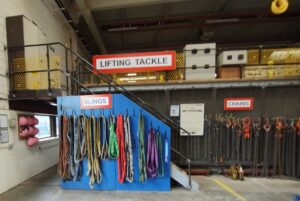
Report on recommendations for improving support for managing menstrual health
Date: 10th June 2024
Report
Report on “Recommendations for improving support for researchers
managing menstrual health”
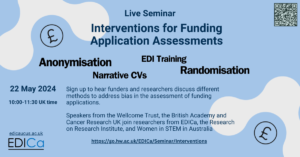
Interventions Seminar Recording
Date: 22nd May 2024
In May EDICa hosted a panel of funder representatives and researchers to discuss alternative methods of assessing funding applications. Access the recording here.

Peer Review Bias in Funding
Date: 4th April 2024
EDICa publishes a report on Peer Review Bias in Funding. Read some highlights.

